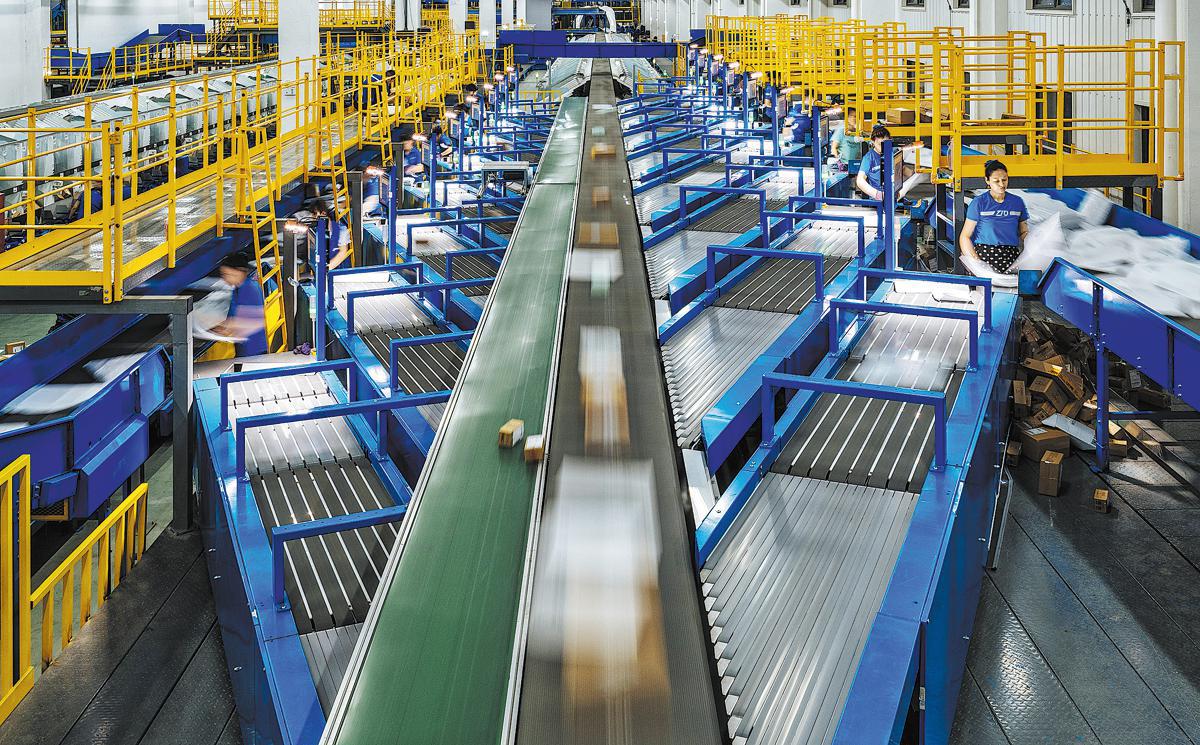From AI to drones, firms deliver industry of future
After decade of rapid growth, express courier services look to more advances, expansion


Each day, more than 500 million parcels are collected nationwide, meaning that every second, nearly 6,000 items are shuttled into the express delivery process.
These statistics, showing average daily operations, were released by the State Post Bureau in July, and reflect the staggering size and progress of the industry in China.
The sector, which has maintained its position as the world's largest express delivery market for 11 consecutive years, is another hallmark of the country's efficiency and technological innovation, experts said.
From 2014 to 2024, China's express delivery volume leaped from 14 billion to a whopping 174.5 billion parcels, accompanied by a significant drop in the average delivery price from over 14 yuan ($1.95) to 8 yuan per parcel.
Behind such colossal volume is efficient resource allocation and technological prowess, with the industry evolving from labor-intensive operations to technology-driven processes.
"The moment a user places an order to send a parcel on his or her mobile phone, the smart system of a courier company activates a chain of automated responses, including which courier will be assigned to pick up the parcel, which outlet the parcel will go to, which vehicle it will be on, and its scheduled arrival time at various points along the route," said Yang Qingyue, a public relations manager for delivery company ZTO Express.
"The entire process is automated, with heavy human intervention only required at the sending and receiving ends, including interactions with the clients," Yang said.
Zhao Chongjiu, director of the State Post Bureau, attributed the acceleration of express deliveries in the first half of this year to the expanded use of air services and high-speed rail, and a wider application of unmanned vehicles and stations, together with artificial intelligence technologies.
"All of this resulted in more areas being included in service circles, where customers can receive their parcels the next day," said Zhao.
The bureau aims to further improve the industry through intelligent sorting, encrypted transportation, real-time tracking, AI-powered anomaly detection, and the expansion of unmanned delivery stations, industry experts said.
























